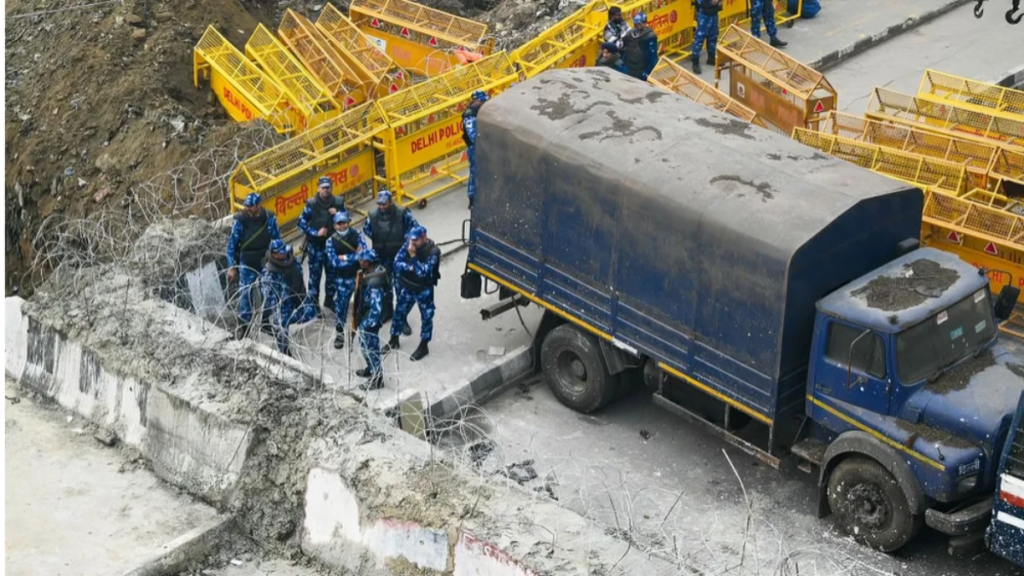Police in northern India have utilized tear gas to prevent a multitude of protesting farmers from marching on Delhi, as they demand minimum crop prices. To fortify the capital against potential protests, razor wire, cement blocks, and fencing have been installed on three sides. The government is apprehensive about a recurrence of the 2020 protests, which resulted in numerous deaths and the eventual repeal of controversial agriculture laws. However, farmers assert that their other demands have yet to be addressed. Given that India’s farmers constitute a significant voting bloc, the government, led by Prime Minister Narendra Modi’s Bharatiya Janata Party (BJP), is keen on maintaining their support.
The BJP is seeking a third consecutive term in the upcoming general elections. Recent images depict the dispersal of protesters near Ambala, approximately 200km north of Delhi, through the use of tear gas. Similar incidents have occurred at the Shambhu border between Haryana and Punjab states. Despite their desire to peacefully cross Haryana and reach Delhi, farmers from Punjab have been denied permission to do so.
Tensions persist as clashes between police and protesters continue at the Shambhu border. In 2020, protesting farmers staged a prolonged blockade of national highways connecting Delhi to neighboring states, posing a significant challenge to Prime Minister Modi’s government. On Tuesday, traffic jams and disruptions were reported in Delhi as authorities implemented roadblocks and redirected traffic. Additionally, large gatherings, including those at border points between Delhi and Uttar Pradesh and Haryana states, have been prohibited by the police, anticipating the farmers’ arrival in the capital.
The Bharatiya Janata Party (BJP)-led state government in Haryana has implemented a temporary suspension of internet services in seven districts until Tuesday. Despite multiple discussions between farm union leaders and federal ministers, a resolution to the ongoing deadlock has not been reached.
The farmers are demanding assured floor prices, also known as minimum support price (MSP), which would allow them to sell the majority of their produce at government-controlled wholesale markets or mandis. They are also urging the government to fulfill its commitment of doubling farmers’ income.
On Monday, federal ministers held a lengthy six-hour meeting with farm union leaders. While some demands, such as the withdrawal of cases against protesters from the 2020 demonstrations, were reportedly agreed upon, there was no consensus on the issue of MSP. Although the government had previously announced the establishment of a committee to ensure support prices for all agricultural products after the repeal of the farm laws in 2021, the committee has not yet submitted its report.
More than 200 farmer unions are participating in the march, aiming to peacefully convey their demands to the government. Sarvan Singh Pandher, the general secretary of the Punjab Kisan Mazdoor Sangharsh Committee, stated to ANI news agency, “We will move peacefully, and our objective is for the government to listen to our demands.”
In addition to the march, farmers’ and trade unions have declared a rural strike on 16 February, during which no agricultural activities will take place. Shops, markets, and offices in all villages will be closed, and farmers will block major roads across the country.
